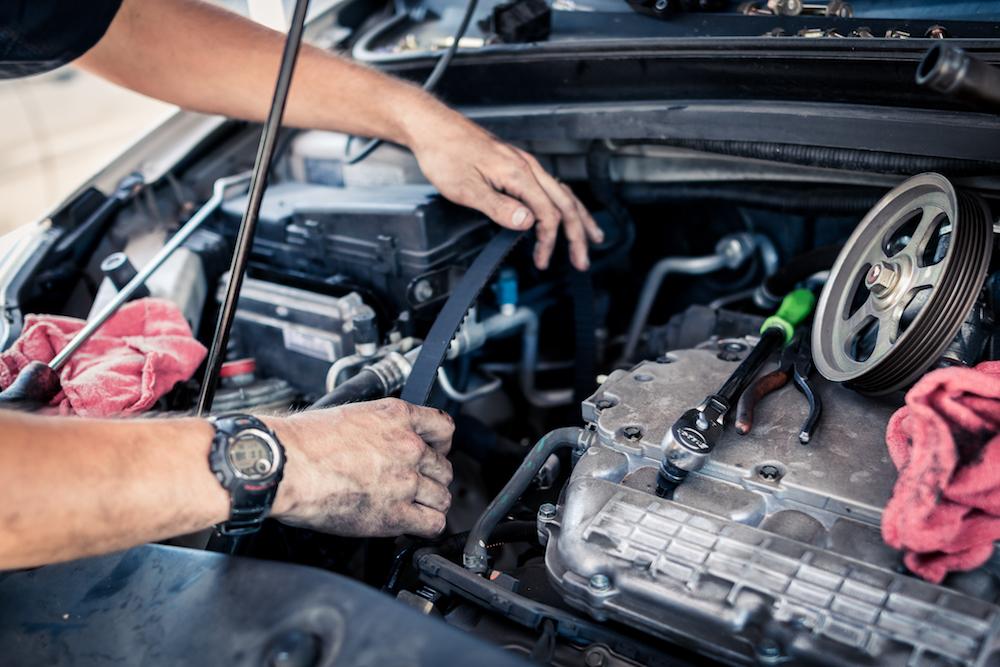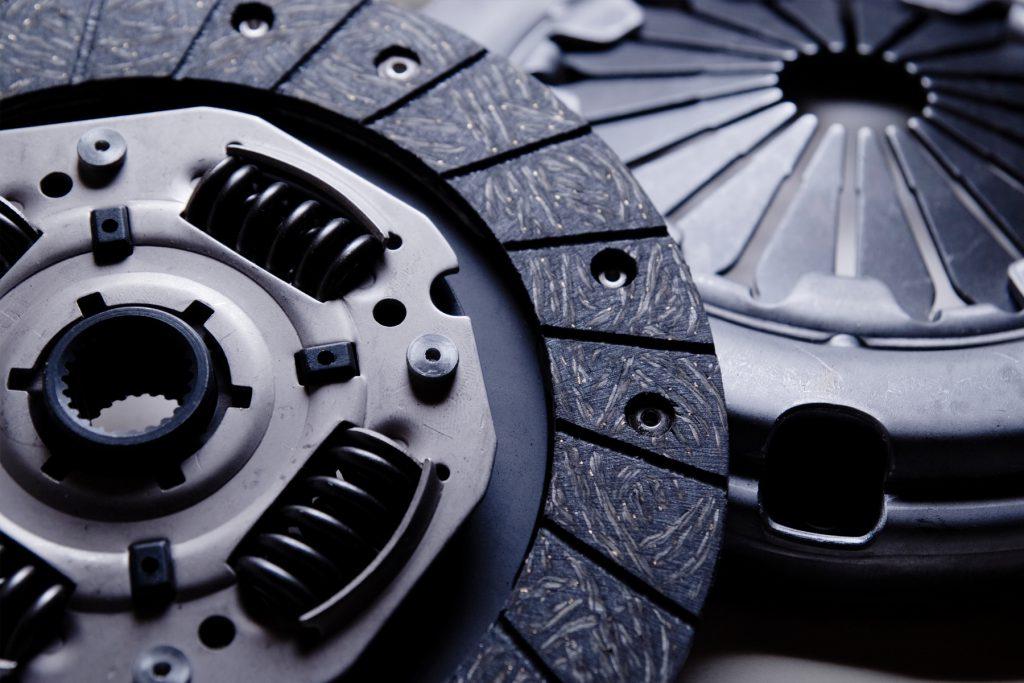Your car may not accelerate due to issues with the fuel system or a faulty transmission. Common reasons include clogged fuel filters or a malfunctioning throttle position sensor.
When your vehicle fails to accelerate as expected, it can be frustrating and concerning. Understanding the root causes of this issue is essential for safe and efficient driving. From fuel system problems to transmission issues, various factors can hinder your car’s acceleration capability.
Identifying and addressing these issues promptly is crucial to ensure the smooth operation and performance of your vehicle. This article will explore common reasons why your car won’t accelerate when pushing the gas, providing valuable insights to help you diagnose and resolve the problem effectively.

Credit: carfromjapan.com
Clogged Fuel Filter
A clogged fuel filter can prevent proper fuel flow, leading to sluggish acceleration in your car. It is essential to regularly replace the fuel filter to ensure optimal engine performance and avoid acceleration issues.
Dirty Or Blocked Filter
In many cases, the main culprit behind a car not accelerating when you push the gas pedal is a clogged fuel filter. The fuel filter plays a crucial role in keeping your engine running smoothly by preventing dirt, debris, and other contaminants from entering the fuel system. Over time, though, the filter can become dirty or blocked, impeding the flow of fuel to the engine and causing a lack of acceleration when you step on the gas.
Restricted Fuel Flow
When your car’s fuel filter becomes clogged, it restricts the flow of fuel to the engine. This restriction in fuel flow can lead to a variety of performance issues, including difficulty in accelerating. As the fuel filter becomes increasingly clogged, it allows less and less fuel to pass through, starving the engine of the necessary fuel it needs to generate power. Consequently, your car may struggle to pick up speed or exhibit sluggish acceleration.
If you suspect that a clogged fuel filter is to blame for your car’s acceleration woes, there are a few signs to look out for. These include:
- Difficulty starting the engine
- Engine misfires or stalling
- Inconsistent engine performance
- Decreased fuel efficiency
If you notice these symptoms, it’s important to address the issue promptly. Ignoring a clogged fuel filter can not only affect your car’s performance but also damage other components of the fuel system, leading to more costly repairs down the line.
Fortunately, replacing a clogged fuel filter is a relatively straightforward task. In some cases, the filter may simply need to be cleaned, while in others, a complete replacement may be necessary. Either way, it’s recommended to consult your car’s owner’s manual or seek the assistance of a professional mechanic to ensure the job is done correctly.
To prevent future fuel filter issues and maintain optimal performance, it’s essential to follow your car manufacturer’s recommended maintenance schedule. This typically includes regularly changing the fuel filter at specified intervals to prevent debris buildup and ensure uninterrupted fuel flow to your engine.

Credit: www.mydriversedge.com
Faulty Oxygen Sensor
An oxygen sensor plays a crucial role in ensuring your car’s engine operates at optimal efficiency. When the oxygen sensor malfunctions, it can significantly affect your car’s performance, leading to a lack of acceleration when you press the gas pedal. Let’s delve into the potential issues associated with a faulty oxygen sensor and how it impacts your car’s ability to accelerate.
Inaccurate Fuel Mixture
A faulty oxygen sensor can cause the engine control unit to inaccurately adjust the air-fuel mixture resulting in a rich mixture, which can lead to poor combustion and subsequently affect the car’s acceleration capabilities. This inadequate fuel mixture can disrupt the engine’s efficiency and performance, hindering its ability to respond to throttle inputs effectively.
Reduced Engine Performance
A malfunctioning oxygen sensor can lead to reduced engine performance, as it fails to provide the necessary feedback to the engine control unit, impairing the engine’s responsiveness and power output. This can manifest as a lack of acceleration when attempting to push the gas pedal, indicating a direct correlation between a defective oxygen sensor and the car’s diminished ability to propel forward.
Malfunctioning Spark Plugs
Malfunctioning spark plugs can be a common cause of your car’s acceleration issues. When spark plugs are faulty, they fail to ignite the fuel air mixture in the engine cylinder properly, resulting in lack of power.
Lack Of Ignition
The lack of ignition caused by malfunctioning spark plugs can lead to improper combustion, preventing the engine from generating enough power to accelerate the vehicle.
Loss Of Power
Loss of power due to faulty spark plugs can cause a significant decrease in engine performance, resulting in your car’s inability to accelerate smoothly.

Credit: carfromjapan.com
Failed Catalytic Converter
If your car won’t accelerate when pushing the gas, a failed catalytic converter could be to blame. This can restrict exhaust flow, leading to reduced engine performance and sluggish acceleration. Get it checked by a mechanic to ensure proper functioning.
Exhaust Blockage
One possible reason your car won’t accelerate when pushing the gas is due to exhaust blockage.
Emissions Issues
If your car is experiencing emissions issues, it could prevent proper acceleration when you press the gas pedal.
“`Failed Catalytic Converter: A failed catalytic converter can impede the flow of exhaust gases, leading to reduced engine performance. Inefficient conversion of harmful gases can restrict acceleration and trigger warning lights on your dashboard.Fuel Pump Problems
When your car experiences issues with accelerating, it can be frustrating and concerning. A common issue that can lead to this problem is fuel pump problems. The fuel pump is responsible for supplying the engine with the necessary fuel for combustion. If there are issues with the fuel pump, it can result in a lack of power when pressing the gas pedal.
Insufficient Fuel Pressure
If the fuel pump is unable to maintain sufficient fuel pressure, it can lead to acceleration problems. A lack of adequate fuel pressure can result from a clogged fuel filter, a faulty fuel pressure regulator, or a weak fuel pump. When the fuel pressure is insufficient, the engine may not receive the required amount of fuel to accelerate efficiently, leading to sluggish performance.
Fuel Pump Failure
Fuel pump failure is a serious issue that can significantly impact your car’s acceleration. Over time, the fuel pump can wear out due to continuous use, resulting in decreased performance or complete failure. Signs of a failing fuel pump include engine sputtering, stalling, and difficulty starting the car. If the fuel pump fails, it will no longer be able to supply fuel to the engine, causing a lack of acceleration.
Throttle Position Sensor Failure
Throttle Position Sensor (TPS) Failure is one of the reasons why your car won’t accelerate when you push the gas. The TPS is a crucial sensor that sends information to your car’s engine control unit (ECU) about the position of the throttle. This information helps the ECU determine the right amount of fuel and air mixture to send to the engine.
Incorrect Throttle Response
If the TPS fails, it can lead to incorrect throttle response. Your car may hesitate or have delayed acceleration when you press the gas pedal. This can be frustrating, especially in critical situations where quick acceleration is necessary for safety.
A faulty TPS can also cause your car to surge or jerk while driving. These sudden jerks can be unexpected and potentially dangerous, especially at high speeds or during maneuvers such as overtaking. It is essential to address throttle response issues promptly to ensure your safety on the road.
Limp Mode Activation
In some cases, when the TPS fails completely, your car may go into a mode called “Limp Mode” or “Fail-Safe Mode.” This mode is designed to limit the vehicle’s performance to prevent further damage or accidents.
When your car is in Limp Mode, you will experience restricted acceleration and reduced power. It might feel like your car is stuck in a lower gear, preventing you from reaching higher speeds or accelerating as usual. This mode is a safeguard to protect your engine from potential harm, and it signals that there is a severe problem that needs immediate attention.
If you notice your car is not accelerating correctly or experiencing irregular throttle response, it is crucial to have the TPS inspected and replaced if necessary. Ignoring these issues can lead to further damage and potentially unsafe driving conditions.
Transmission Issues
When it comes to your car’s ability to accelerate, transmission issues can be a major culprit. If you find that your car is not responding as it should when you push the gas pedal, it may be due to problems with your transmission. Two common transmission problems that could cause this issue are slipping gears and transmission failure.
Slipping Gears
If your car’s transmission is slipping gears, it means that it is not securely shifting into the appropriate gear. This can result in a lack of power and poor acceleration when you press the gas pedal. Slipping gears can be caused by a variety of factors, including:
- Low transmission fluid levels
- Worn out clutch or clutch plate
- Malfunctioning solenoids
To diagnose the problem, you can check the transmission fluid levels and look for signs of leakage. If the fluid is low, you may need to top it up or there may be a leak that needs repairing. If the fluid levels are fine, it is recommended to take your car to a professional mechanic to determine the exact cause of the slipping gears.
Transmission Failure
Transmission failure is a more serious issue that can result in a complete loss of acceleration. In some cases, you may not even be able to shift gears at all. Transmission failure can occur due to a variety of reasons, such as:
- Wear and tear over time
- Overheating of the transmission
- Failure of internal components
Unfortunately, transmission failure typically requires a complete transmission rebuild or replacement, which can be quite costly. To avoid transmission failure, it is important to maintain your transmission properly by regularly checking the fluid levels and having it serviced according to your vehicle manufacturer’s guidelines.
If you are experiencing problems with your car’s acceleration, it is crucial to address the issue as soon as possible. Ignoring transmission issues can lead to further damage and more expensive repairs down the line. Consulting with a professional mechanic is the best course of action to diagnose and fix any transmission problems you may be facing.
Electrical Problems
When it comes to issues with your car’s acceleration, electrical problems can be a major culprit. Faulty wiring and sensor malfunctions are common instances where your car won’t accelerate properly, and these issues can thwart the functionality of your vehicle.
Faulty Wiring
If your car experiences faulty wiring, it can disrupt the flow of electricity that powers various components, including the acceleration system. Loose connections, corroded wires, or short circuits can lead to disrupted electrical signals, resulting in a lack of acceleration when you press the gas pedal.
Sensor Malfunction
Sensors play a crucial role in providing essential data to the car’s computer system, which in turn regulates the acceleration process. Malfunctioning throttle position sensors, knock sensors, or mass airflow sensors can lead to incorrect input signals, causing your car to struggle with acceleration despite pressing the gas pedal.
Conclusion
So, if your car won’t accelerate, it could be due to several issues. Getting to the root of the problem is essential for a smooth driving experience. Don’t ignore the warning signs and always seek professional help when needed. Your safety on the road is crucial.


